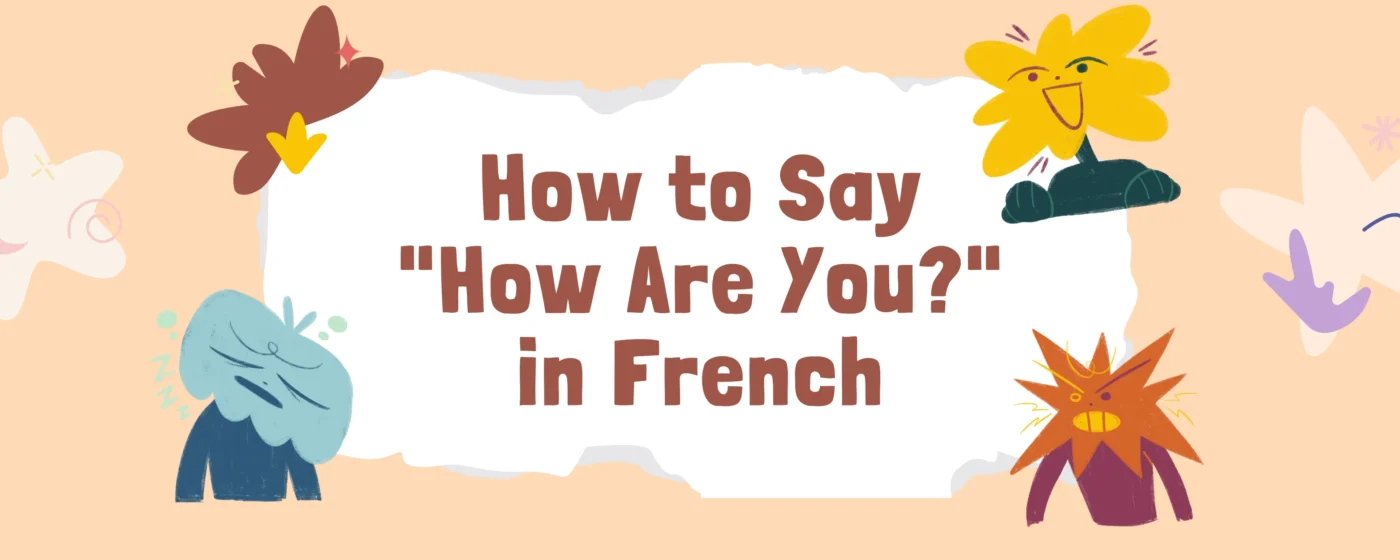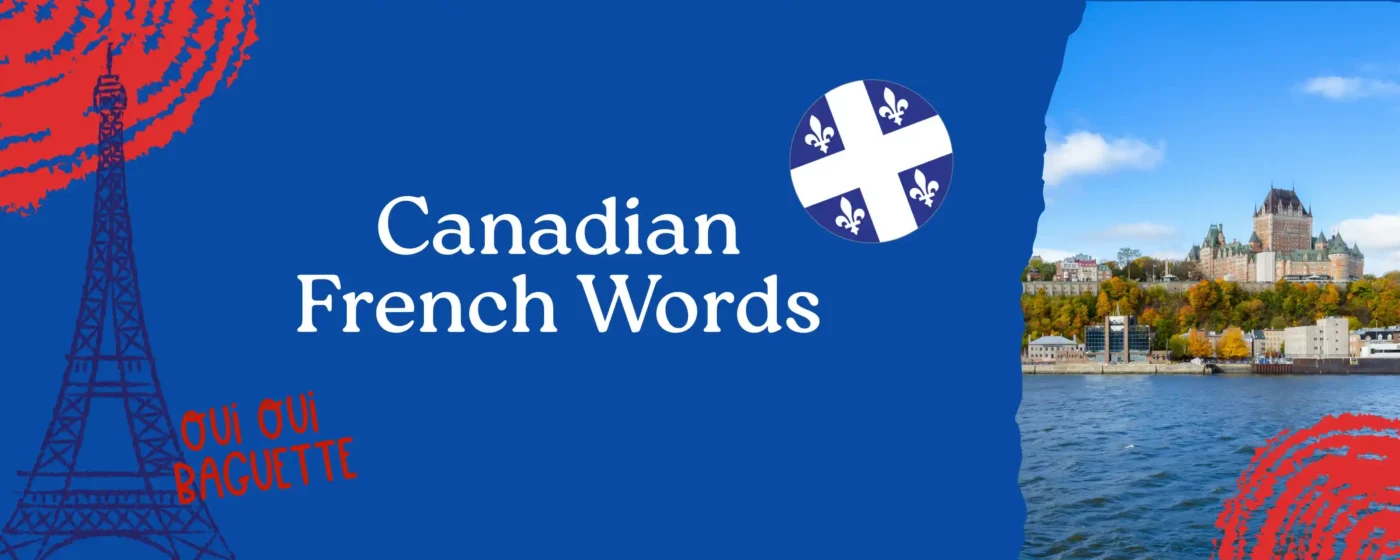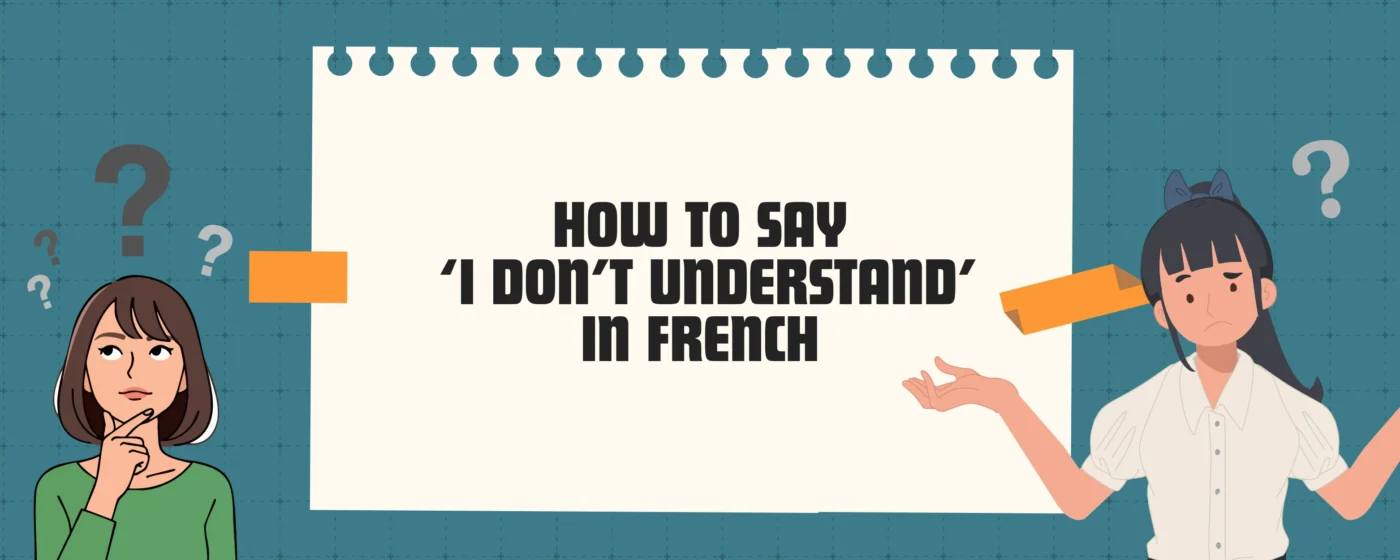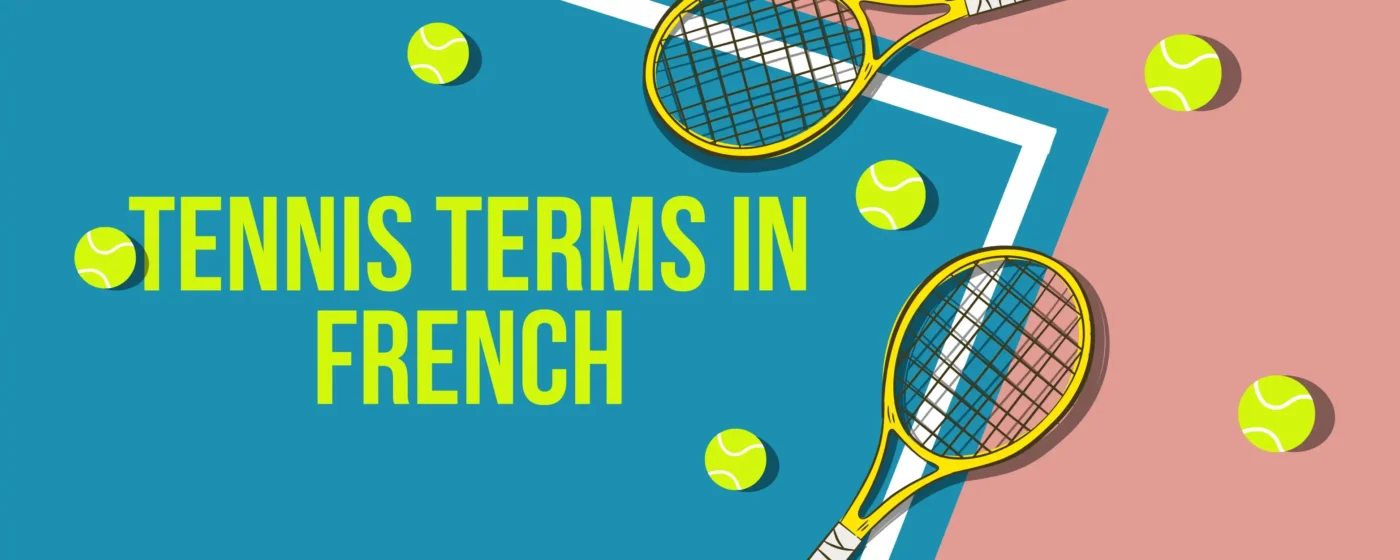8 Ways to Say “How Are You?” in French

Have you ever entered a French café and observed how greetings seem to hold a special warmth and charm? The French language embodies the significant cultural emphasis on politeness and social interaction. Whether you’re meeting a friend, a colleague, or a stranger, there’s a particular way to inquire “How are you?” that suits the occasion. This blog will guide you through eight distinct methods to pose this simple yet impactful question ranging from formal phrases to casual conversational lingo.
Key Takeaways
- Learn about the sentence “How are you”, and know the different ways to say ” how are you” in the French language.
- Know the common words such as Comment allez-vous ?, Comment ça va ?, Quoi de neuf ?, Comment vous sentez-vous ?, etc.
- Learn about fun casual words, such as “Quoi de neuf?” (What’s new?), Ça gaze? (What’s fizzing?), or Quoi de beau? (What’s good?) vibe with friends.
- There are words regarding the care or Health check. Comment vous sentez-vous? or simple Vous allez bien? show care in medical or polite spots.
- Learn the words which are help you reply like Bien, merci!, Ça roule (all good), Comme d’hab (as usual), or Tout va bien keep it flowing easily.
Common Ways to Say How Are You In French
1. Comment allez-vous ?
Translation: How are you? (formal)
Pronunciation: koh-mohn ta-lay voo
Sentence: Bonjour Madame, comment allez-vous? (Hello Ma’am, how are you?)
This is the most formal and courteous way to ask “How are you?” in French. It is appropriate for professional environments or when speaking to someone older or not well known. Comment allez-vous? (kom-mohn tay-lay voo) shows respect and formality. For instance, when greeting a professor or a supervisor, this phrase is your best bet. It translates to “How are you?” and literally means “How do you go?” a beautifully poetic expression reflective of the French manner.
2. Comment ça va ?
Translation: How’s it going?
Pronunciation: koh-mohn sah vah
Sentence: Salut Paul, comment ça va? (Hi Paul, how’s it going?)
Balancing between formal and informal, Comment ça va ? is quite versatile. It’s suitable for use with individuals you are familiar with but not too closely, such as acquaintances or casual coworkers. It translates directly to “How’s it going?” and is perfect for keeping a friendly tone without being overly casual or too formal.
3. Quoi de neuf ?
Translation: What’s new?
Pronunciation: kwah duh nuff
Sentence: Hé, quoi de neuf depuis la dernière fois? (Hey, what’s new since last time?)
If you’re reconnecting with friends, consider using Quoi de neuf ? (kwa duh nuff) This phrase means “What’s new?” and has a laid-back and conversational vibe. Use it when seeing a classmate or friend after a while apart. Think of running into an old school friend — this expression would serve as a perfect icebreaker.
4. Comment vous sentez-vous ?
Translation: How are you feeling?
Pronunciation: koh-mohn voo sahn-tay voo
Sentence: Après l’opération, comment vous sentez-vous?(After the operation, how are you feeling?)
This phrase literally means “How do you feel?” and centers around emotional or physical wellbeing. It’s often employed in medical or professional contexts. For instance, a doctor might ask a patient, Comment vous sentez-vous ? (koh-mohn voo sahn-tay voo) This expression conveys care and concern beyond a typical greeting.
5. Vous allez bien ?
Translation: Are you well?
Pronunciation: vooz ah-lay byan
Sentence: Bonsoir Monsieur, vous allez bien?(Good evening sir, are you well?)
This phrase is another courteous way to greet individuals you’re not very familiar with. “Vous allez bien ?” translates to “Are you well?” It is somewhat less formal than Comment allez-vous ?, yet still polite. For example, greeting a neighbor or a senior colleague with this phrase adds a friendly and respectful touch.
6. Ça va ?
Translation: All good? / You okay?
Pronunciation: sah vah
Sentence: Ça va ? Tu as l’air fatigué. (Are you okay? You look tired.)
As the most frequently used casual phrase, Ça va ? is common in everyday French interactions. It simply means “You okay?” or “How’s it going?” You can use this expression with friends, classmates, and even with familiar faces like the local baker or your fitness instructor. It’s short, simple, and effortlessly captures the French essence.
7. Ça gaze ?
Translation: What’s up? / Is everything fizzing? (very informal)
Pronunciation: sah gahz
Sentence: Yo ! Ça gaze aujourd’hui? (Hey! What’s up today?)
Trendy and playful, Ça gaze ? is primarily utilized by the younger generation. This slang version of “How’s it going?” adds a fun flair. You might consider using it in texts or when socializing with friends at a party. It literally means “Is it fizzing?”, akin to a soft drink, making it as lively as the individuals who use it.
8. Quoi de beau ?
Translation: What’s good? / What’s beautiful (new)?
Pronunciation: kwah duh boh
Sentence: Coucou ! Quoi de beau ce week-end? (Hey there! What’s good this weekend?)
Looking to sound endearing and friendly? Try Quoi de beau ? It translates to “What’s beautiful (new)?” and adds a cheerful tone to your conversations. Ideal for chatting with close friends, this phrase conveys warmth and curiosity, making the recipient feel truly valued.
If you’re learning French, greetings are a great place to begin. Our guide on Top 9 Ways to Say “Nice to Meet You” in French will help you sound natural.
Stop Guessing, Start Speaking!
With our expert tutors, you’ll master the words you need to speak French confidently!
4 Ways to Respond to “How Are You?” in French
Mastering how to ask is great, but being able to reply is equally essential. Here are four common responses to consider based on your feelings and whom you’re speaking with:
1. Bien, merci!
Translation: Fine, thank you!
Pronunciation: byan, mehr-see
Sentence: Comment allez-vous? Bien, merci! (How are you?Fine, thank you!)
This translates to “Good, thank you!” It’s courteous and applicable in both formal and informal contexts.
2. Ça roule
Translation: All good / Things are rolling (casual)
Pronunciation: sah rool
Sentence: Ça va?Oui, ça roule! (You okay? Yeah, all good!)
A relaxed way to express “All good!” or “Everything is going well.” Perfect for conversations with friends or colleagues.
3. Comme d’hab
Translation: As usual
Pronunciation: kohm dab
Sentence: Quoi de neuf?Rien, comme d’hab. (What’s new? Nothing, as usual.)
Short for Comme d’habitude, it signifies “As usual.” It’s informal and commonly used when situations are just… ordinary.
4. Tout va bien
Translation: Everything is fine
Pronunciation: too vah byan
Sentence: Comment ça va ?Tout va bien, merci. (How’s it going?Everything is fine, thank you.)
This means “Everything is fine,” offering a positive and reassuring reply, ideal for when things are going smoothly.
If you’re learning French, understanding polite expressions is essential. Our guide on 13 Ways to Say “Welcome in French” helps you use the right phrase in every context.
Conclusion
Getting to know various ways to respond to “How are you?” in French not only enhances your language abilities but also helps you connect more deeply with French speakers. From professional environments to casual get-togethers, selecting the right greeting reflects respect and cultural appreciation. Begin incorporating these phrases into real dialogues to confidently advance toward fluency.
Interested in discovering more delightful French sayings and cultural insights? Check out La Forêt French Class, where small steps like learning greetings can lead to significant language achievements.
If you’re learning French, knowing polite farewells is just as important as greetings. Our blog on 10 Ways to Say “Goodbye” in French will guide you with ease.
Did you know?
- In conversations, the French often repeat Ça va ? not just once but twice:
- “Ça va ? – Ça va.” This functions as both a question and an answer – showcasing how adaptable and friendly this simple expression can be!
Frequently Asked Questions
1. What are the most effective ways to say “How are you?” in French?
Ans: The most suitable phrases vary depending on the context. In formal settings, use “Comment allez-vous ?” and in semi-formal situations, opt for “Comment ça va ?” For conversations with friends, you can say “Ça va ?”, “Quoi de neuf ?”, or use informal expressions like “Ça roule ?” Each variation conveys a different atmosphere.
2. How should you respond to “Ça va” in French?
Ans: You can simply respond with “Ça va” if you’re feeling fine. Other possible replies include “Bien, merci” (Good, thank you), “Ça roule” (Everything’s good), “Comme d’hab” (As usual), or “Pas trop mal” (Not too bad).




